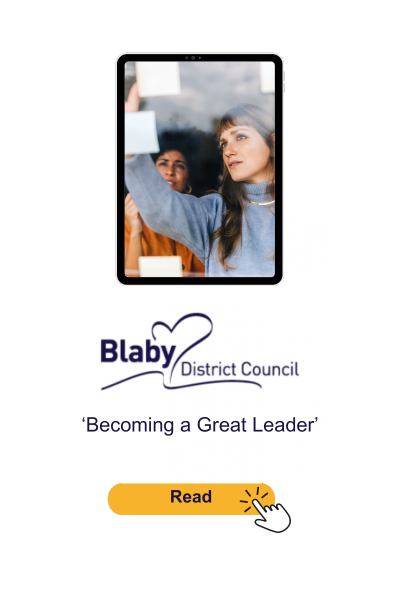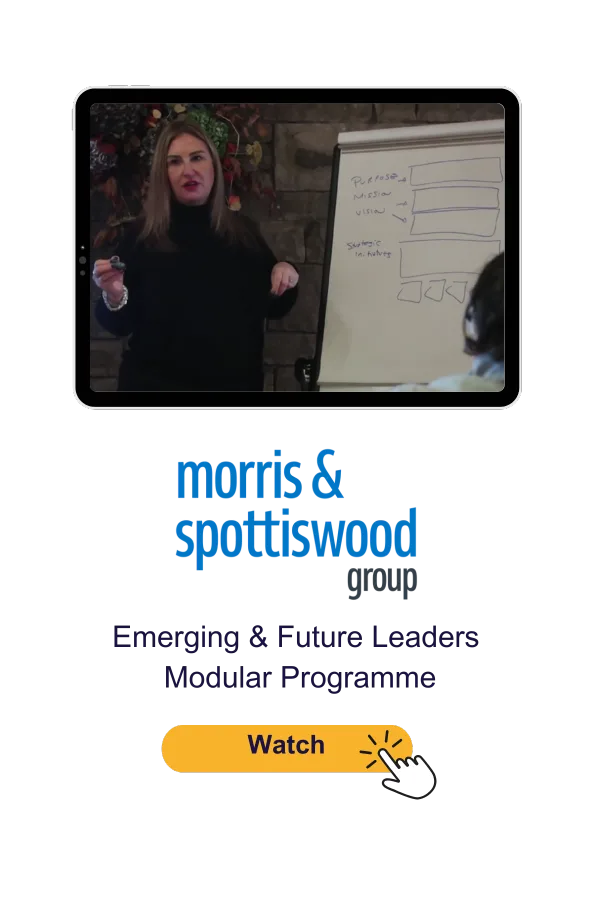BUILD YOUR OWN MANAGEMENT & LEADERSHIP TRAINING
We don’t believe a one size-fits-all development solution measures up when it comes to realising the biggest return on your investment….
Which is why we’re committed to investing the time it needs to work with you to build a solution that meets your people and organisational needs exactly.
Browse the modules below to build your own in-house management and leadership training programme or arrange a meeting with us to create it together. Once we understand your requirements and ‘wish-list’, we will prepare a tailormade, step-by-step project outline and quotation for implementation.
Build Your Own Management & Leadership Development Programme
Each module can be delivered as a stand-alone or combined to create a modular programme that’s delivered over time and supported with practical, role-related learning transfer activities to build confidence and embed new skills.
Workshops can be delivered virtually or face-to-face and as full or half day modules. They can be brought to life with actors, enhanced with one-to-one coaching, supplemented with psychometrics, accredited by our partners at the ILM, and evaluated using 360 degree evaluation.
All content can be adapted to align with specific roles and levels of experience and enhanced by a range of different options. And finally, this is by no means an exhaustive list of modules we can include; we have a library of content and a stable of specialists to draw upon, so if you have something specific in mind, just drop us a line.
Accountability & Creative Problem Solving
- Reflect on problem solving in the context of the role of a leader
- Understand the difference between responsibility and accountability when it comes to finding solutions to problems
- Reflect on our personal go-to approaches when dealing with workplace issues, and explore the pros and cons of different approaches
- Gain awareness of the common pitfalls of problem solving including: passing the buck to someone else; avoidance; making assumptions; acting too fast or slow
- Recognise the benefits of innovation at work
- Understand how the brain affects problem solving and the difference between left and right brain approaches
- Practise tools for analysing problems including what, when how and situational analysis tools
- Explore the different stages of creative problem solving
- Learn a selection of techniques for developing creative solutions, such as De Bono’s thinking hats, restriction and random connections
- Develop a solutions-focus using the OSKAR approach
- Have set a personal plan to transfer the learning to their day to day role
Coaching For High Performance
- Understand own learning style
- Reflect on the importance of investing time into our own learning and growth, as well as into supporting others
- Understand the learning cycle using Kolb’s methodology
- Consider the range of development options available to enable learning in the context of your workplace
- Explore the differences between coaching and mentoring
- Develop listening and questioning skills for supporting others with development
- The process of coaching including the importance of agreeing learning objectives and targets
- Coaching techniques using the OSCAR model
- Skills to give constructive positive and negative feedback
- Practice coaching skills, using them in simulations
- Have set a personal plan to transfer the learning to their day to day role
Courageous Conversations
- Understanding different conversations: Compromising, Courageous, Confrontational
- Understand the psychology behind why open communication and honest feedback has a positive impact on our attitude to each other and employee engagement
- Practice using a framework for preparing for and conducting a ‘courageous conversation’ be it with someone more senior, a peer or direct report.
- Exploration of our own personal communication preferences and how we can modify them when dealing with others
- The ability to recognise the different ways in which people can react when they feel like they are being criticised, including understanding of Transactional Analysis principles
- Confidence to start a courageous conversation using the three-step technique, ‘Wait a SEC’, to minimise defensiveness or denial
- Techniques to deal with different reactions to feedback including conflict
- Have set a personal plan to transfer the learning to their day to day role
Day-to-Day Performance Management
- Understand the importance of fluid, ongoing and timely performance management conversations as part of the contemporary leaders’ skillset
- Explore the differences between annual or bi-annual appraisals, structured performance management one-to-ones and informal performance conversations
- Learn how to prepare for and lead structured performance management one-to-ones (environment, correspondence, preparation, monitoring and evaluation)
- Use a framework to provide constructive and effective ‘in the moment’ feedback
- Explore the importance of, and strategies to manage both good and poor performance
- Recognise that different people have different preferences in terms of how they are performance managed and how performance conversations are an opportunity to invite feedback to gain greater understanding of how best to support individuals
- Practice using ‘pull and push’ influencing techniques and understand the pros and cons of each
- Successfully complete a final exercise to demonstrate our ability to manage performance fluidly and mindfully
High-Impact Presentations
- How to plan and prepare for presentation – Why, Who, What, Where, When
- The importance of presentation structure
- The use of Storytelling in memorable presentations
- How to use visual aids to create impact
- Techniques for establishing a relationship with your audience
- Reflect on how to maximise our personal impact based on our own strengths and character
- Importance of tone and voice projection
- Using body language effectively to support verbal messages
- Techniques for managing nerves
- How to invite and deal with audience questions
- Consideration of ‘call to actions’ and encouraging further engagement following a presentation
Inclusively Leading Diverse Teams
- Understand the business benefits of diverse teams and inclusive working environments
- Define what the qualities of an Inclusive Leader are
- Understand a manager’s role in championing and role modelling inclusive and allyship behaviours
- Consider unconscious bias, stereotypes, assumptions, and banter as barriers to building a team where all members feel equally included and engaged
- Be signposted to the implicit unconscious bias online self-assessment and explore ways to reduce the impact of unconscious bias on how we performance manage and build rapport
- Understand the importance of the psychological contract and how to build a psychologically safe environment where every individual can thrive
- Explore the role of vulnerability in authentic inclusive leadership
- Have set a personal plan to transfer the learning to their day to day role
Influential & Collaborative Communication
- Explore the elements of effective communication
- Understand individual communication preferences using the Colour of Communication profiling tool
- Reflect on the main causes of communication breakdown and understand how to eliminate them from their teams
- Understand the power of body language and micro-behaviours in supporting or hindering rapport building and cooperation
- Develop and practice techniques to build rapport
- Explore how the principles of Transactional Analysis can improve self-awareness and aid communication and relationships
- Gain the ability to adapt our influence style using the ‘push or pull’ model and understand the range of influencing styles
- Practice using the Gearbox model to start difficult conversations that end in win-win
- Understand the methods of communication used across successful organisations and how to mindfully use each to its fullest potential
- Have set a personal plan to transfer the learning to their day to day role
Managing Change With Agility & Resilience
- Evaluate our own experiences and personal views about change
- Analyse the current drivers of change within the business world and determine the impact these have on processes, procedures, services and people
- Undergo a business change simulation with thorough review to understand the change journey
- Understand how to foster a growth-mindset to encourage meaningful change
- Recognise the power of creating a tipping point for affecting change using work from Malcolm Gladwell and Seth Godin
- Explore the three C’s of agile leadership: communication, commitment, and collaboration
- How to use Kotter’s 8 step change process to ensure smooth transitions when change needs to take place with the business
- Grasp how we prepare for change including stakeholder analysis, allocating roles and responsibilities, using storytelling to invite people on the journey with you
- Use the change curve to plan and manage human elements of change
- Consider how to overcome resistance and encourage agility and resilience at all levels
- Complete an Action Plan to ensure a transfer of learning to the workplace
Managing People & Teams in a Hybrid World
- Review actions and application of learning following last module
- Complete a questionnaire to determine what drives us as a leader
- Study the subject of Situational Leadership – how we motivate people based on their specific needs and wants rather than ours
- Using models such as FAB (Forward, Alongside, Behind) participants discover alternative ways of working with teams and individuals to get the best from them
- Develop an understanding of team dynamics and how this impacts team effectiveness
- Determine the purpose and context of Performance Management within modern organisations (and how this differs to the formal appraisal)
- Understand why, and how to set and agree objectives and measure performance in line with organisational policy and process
- Appreciate the GIFT model of feedback to recognise achievements. How we communicate areas for improvement to team members in a motivational way
- Explore the importance of managing both good and bad performance
- Recognise how to differentiate approaches to reward and recognition in order to motivate team members
- Have set a personal plan to transfer the learning to their day to day role
Project Planning & Management
- Understand and describe the principles of basic Project Management
- Identify the people involved in projects and the impact they can have on the project
- Identify processes required to make projects successful
- Describe a standard Project Management methodology
- Understand a range of tools and techniques for planning and managing projects
- Identify the different resources required when managing projects and the issues that can affect them
- Recognise the importance of monitoring progress and risk
- Know how to approach the closing stage and evaluation at end of project
- Begin planning a business project
Self-Management & Personal Effectiveness
- Reflect on the typical demands and constraints on a leaders time and recognise how this impacts on ourselves and others
- Understand how as a leader we need to balance tasks, the team and individuals
- Understand different time management tools and prioritising techniques that play to our strengths and maximise efficiencies
- Explore strategies to break old habits, and create and sustain new ones that support our goals
- Understand the research around goal setting
- How to deal with time wasters; to be ‘ruthless with time, but gracious with people’
- Using the Seven Step Delegation Plan to delegate effectively to others
- Delve into the key attributes of personal resilience
- Experiment with mindfulness as a tool to manage stress
- Identify ways we can build a resilient team and support others to have good balance and a sense of wellbeing
Understanding Myself As A Leader
- Know the difference between just managing people and inspiring others through positive leadership
- Recognise the power of the leader’s mindset in shaping team atmosphere
- Explore personal characteristic in the context of individual MBTI profiles and the effect these have on behaviour and interactions
- Understand the differences between accountability and responsibility. What is expected of the leader and their direct reports?
- Explore personal values and understand how these impact on relations with others and how they relate to wider business values
- Be introduced to the theory of ‘Johari Window’ to better understand ourselves and relationships with others
- The role of asking for feedback in developing self-awareness
- Learn about the dynamics of emotional intelligence using the work of Daniel Goleman and analyse own emotional intelligence using a questionnaire
- Examine the nature of Assertive, Passive & Aggressive behaviours and discovered where one sits on the Assertiveness continuum
- Gain awareness of how we respond to challenging situations or conflict
- Have set a personal plan to transfer the learning to their day to day role













